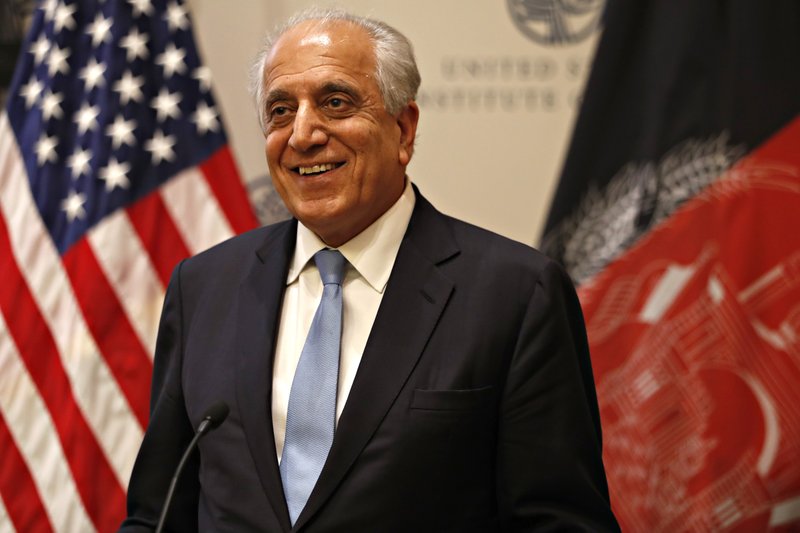KABUL, Afghanistan -- Airstrikes in Afghanistan's southern Helmand province have killed 21 civilians, including women and children, a lawmaker from the region said Sunday.
Mohammad Hashim Alkozai said 13 civilians were killed in one strike and eight in another. Both were carried out late Friday in the Sangin district, where heavy fighting is underway between NATO-backed Afghan forces and the Taliban. Alkozai said at least five other people were wounded in the airstrikes.
"Innocent people, women and children, are the only victims of the airstrikes," he said, adding that the military operations have stoked public anger.
Omer Zwak, the provincial governor's spokesman, said insurgents fired on Afghan forces from a civilian area. He confirmed that airstrikes had killed civilians but could not provide further information.
Alkozai said he has raised concerns about civilian casualties in parliament and with government officials, but that they have taken no action.
Afghan forces are struggling to combat the Taliban, who hold sway over nearly half the country and carry out daily attacks on security forces.
The terms of peace with the Taliban are for the Afghans to decide, the Pentagon's top official said early today during an unannounced visit to the country.
Pat Shanahan, the recently installed acting secretary of defense, planned to meet with U.S. commanders and Afghan leaders. He said he has no orders to reduce the roughly 14,000 U.S. troops in the country, although officials say that is at the top of the Taliban's list of demands in exploratory peace negotiations.
Shanahan said he is encouraged that President Donald Trump's administration is exploring all possibilities for ending a 17-year war, the longest in American history.
Thus far the Taliban have refused to negotiate with the government of President Ashraf Ghani, calling it illegitimate. Washington is trying to break that impasse.
"The Afghans have to decide what Afghanistan looks like. It's not about the U.S., it's about Afghanistan," Shanahan told reporters traveling with him from Washington.
Trump's special envoy for Afghanistan, meanwhile, continued his extended diplomatic tour of Europe and the Middle East to promote a U.S. peace initiative.
The State Department said in a statement Sunday that Special Representative for Afghan Reconciliation Zalmay Khalilzad would spend the rest of February traveling to Belgium, Germany, Turkey, Qatar, Afghanistan and Pakistan.
It said the trip is intended "to facilitate a peace process that protects U.S. national security interests and brings all Afghan parties together in an intra-Afghan dialogue through which they can determine a path for their country's future."
Khalilzad recently finished a similar trip during which his talks with the Taliban produced a tentative framework agreement, but he warned that the negotiations are far from finished.
In a separate development, the Afghan intelligence service said it had arrested three members of the Haqqani group, a Taliban faction believed to be based in Pakistan, after two bombings in Kabul killed and wounded dozens of people.
The National Directorate of Security said the three suspects confessed to taking part in a truck bombing near the German Embassy in May 2017 that killed at least 90 people, and a November 2018 attack that killed five security contractors, including a British national.
The security agency also said it had arrested a university professor and an imam in Kabul who had recruited hundreds of young people for the local affiliate of the Islamic State extremist group, sending them to the eastern Nangarhar province for training. It said the imam confessed that his own nephew had carried out a suicide bombing in Kabul.
Information for this article was contributed by staff members of The Associated Press.
A Section on 02/11/2019
